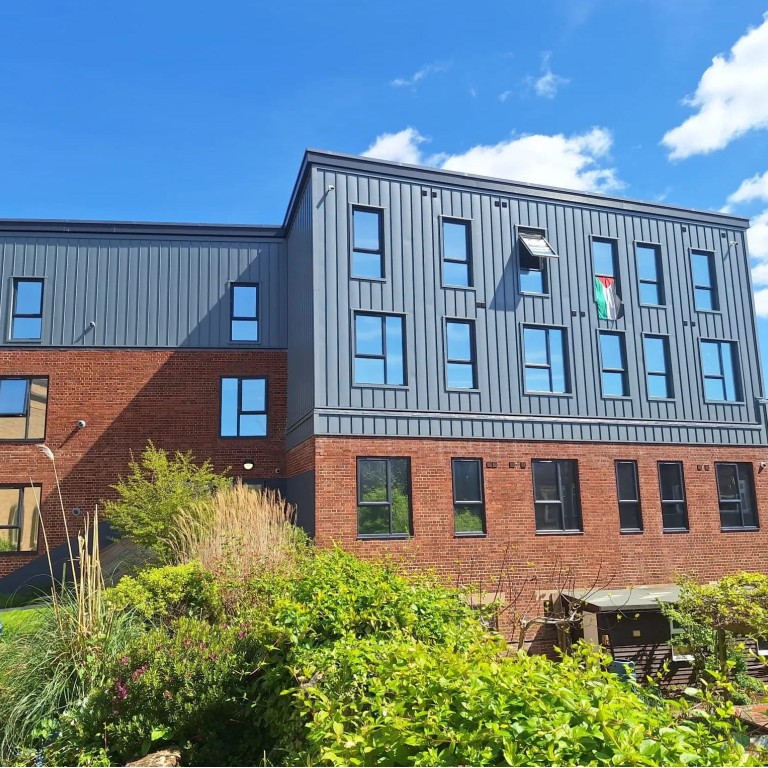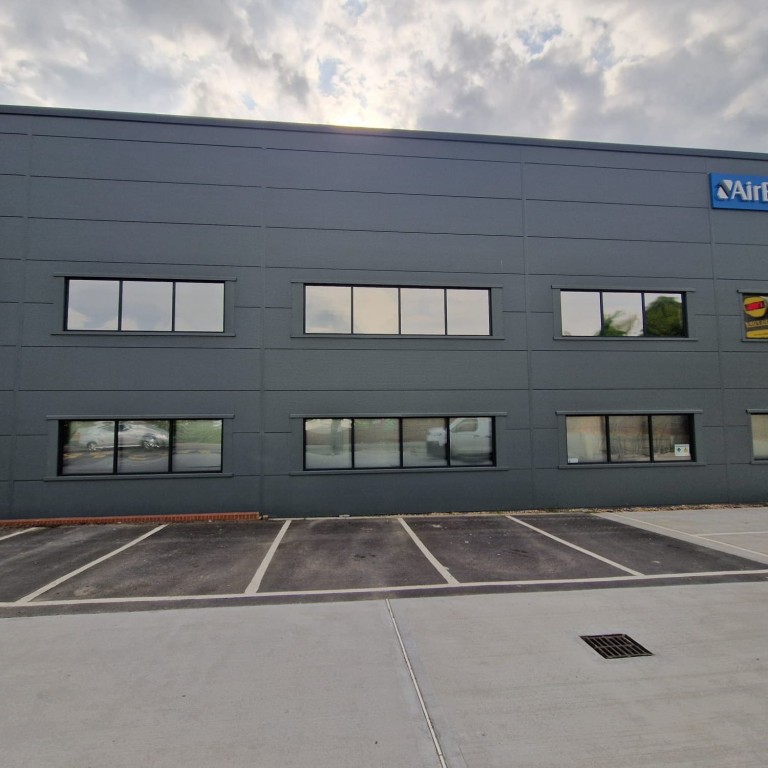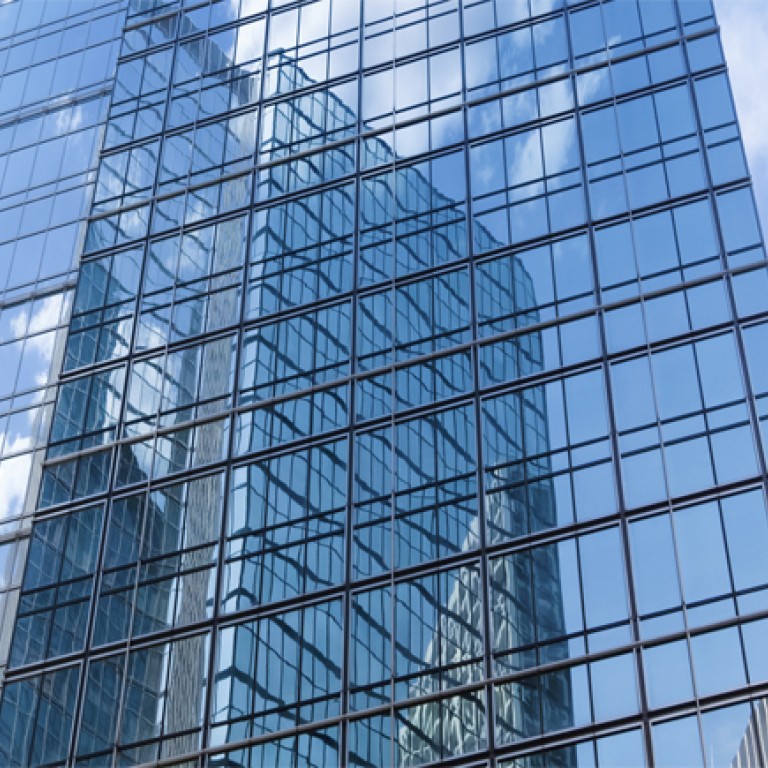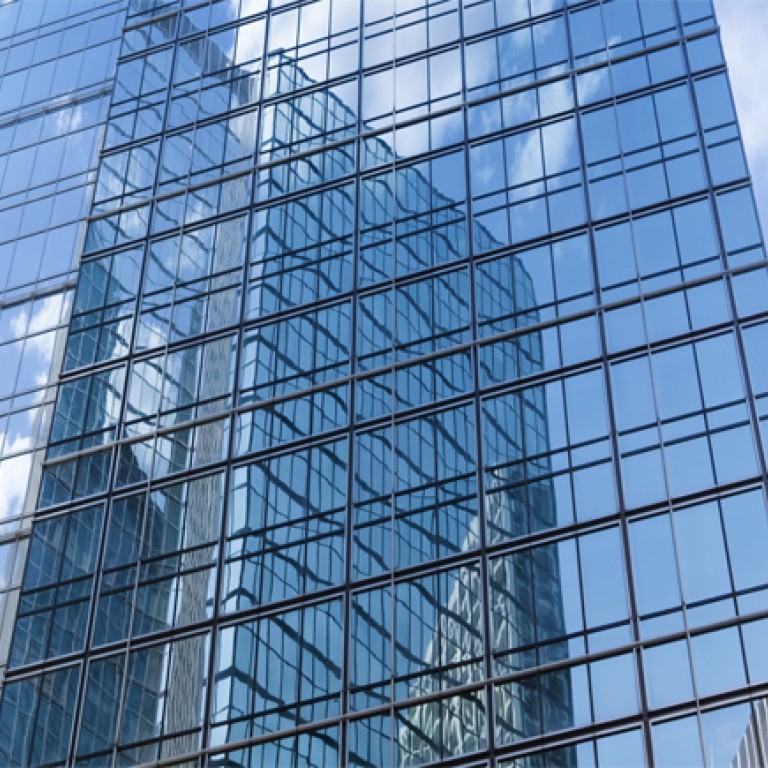Reflective Window Film
Purchasing Reflective Window Film is your initial step toward creating a more comfortable and stylish environment in your home or office.
Buy Reflective Window Film
Purchasing Reflective Window Film is your initial step toward creating a more comfortable and stylish environment in your home or office. At Tintfit Window Films, we offer a wide range of high-quality films to help you control heat, ensure privacy, and add elegance to your windows.
Why Choose Our Reflective Window Film?
Our Reflective Window Films are the ultimate choice for those seeking heat control, privacy, and a touch of elegance in their spaces.
Reflective Window Film: A Smart Investment
When it comes to managing heat and enhancing the aesthetics of your living or working space, Reflective Window Film is your trusted ally. Boasting exceptional heat control capabilities, our Reflective Window Film is the perfect solution for maintaining a comfortable and energy-efficient environment.
- Extensive Selection: You will find a diverse range of Reflective Window Film options, allowing you to meet your unique needs.
- Professional Quality: All our films are manufactured using cutting-edge technology and top-quality materials.
- Expert Advice: Our team of professionals are ready to provide you with expert advice on selecting and installing the film.
- Affordable Pricing: We offer the best prices in the UK without compromising on quality.
By choosing Reflective Window Film from Tintfit Window Films, you are investing in the comfort and style of your space. Contact us today to learn more about our products and place an order. Our team is always ready to assist you in making the right choice.
Does reflective window film really work?
Reflective window film, often known as one-way mirror film, is a highly effective solution for enhancing privacy and managing sunlight in both residential and commercial settings. Its functionality relies on a straightforward principle: the film has a reflective outer surface that bounces back a significant portion of external light, thereby reducing the amount of light that enters the interior.
Here's how it works:
- Reflection of Light: Reflective window film features a micro-thin, highly reflective layer on its external side. This layer functions much like a mirror, sending back a substantial portion of the sunlight and heat that strikes the film. This immediate reflection minimises the amount of light and warmth entering the building.
- Solar Heat Rejection: By reflecting a large part of the sun's rays, reflective window film effectively lowers the heat gain inside the building. This, in turn, minimises the need for excessive air conditioning and cooling, resulting in energy savings.
- Daytime Privacy: Reflective film provides excellent daytime privacy. When it's brighter outside than inside, people outdoors will mainly see their reflection when looking at the glass. This means that during the daytime, you can enjoy an unobstructed view out, while maintaining privacy from curious onlookers.
- Glare Reduction: One of the key advantages of reflective film is its ability to reduce glare from direct sunlight. This is particularly beneficial in office settings where computer screens can be adversely affected by excessive sunlight. By minimising glare, reflective film enhances visual comfort.
- UV Ray Blockage: Quality reflective window films are constructed to block a significant portion of harmful UV rays. These UV rays are a leading cause of fading in furniture, flooring, and artwork. By filtering out these rays, the film helps preserve your interior furnishings.
- Energy Efficiency: Reflective films help in improving energy efficiency. By blocking excess heat from the sun, they decrease the reliance on air conditioning systems. This leads to energy savings and a reduction in cooling costs.
- Nighttime Privacy: It's crucial to understand that the privacy provided by reflective film during the daytime is somewhat reversed at night. When the interior is lit and it's darker outside, the film's reflective properties diminish, offering less privacy. To maintain nighttime privacy, it's common to pair reflective film with curtains or blinds.
- Variety of Tints: Reflective films are available in various tints, allowing you to select the level of reflectivity and the aesthetic that suits your space.
Reflective window film is a versatile and cost-effective solution for managing light, heat, and privacy. It provides substantial benefits both in terms of energy savings and creating a more comfortable living or working environment. However, it's essential to consider your specific needs and the day-night cycle when selecting and installing this type of film. Reflective film can be a valuable addition to your windows, contributing to energy efficiency and enhanced privacy.
Types of Reflective Window Film
At Tintfit Window Films, we offer a diverse range of reflective window films to cater to your specific needs:
- Solar Heat Rejection Reflective Window Film: Reflective Window Film is engineered to combat solar heat, making your interior spaces cooler and more comfortable.
- Privacy Reflective Window Film: With its one-way visibility feature, reflective window film keeps prying eyes at bay while allowing you to enjoy the view from within.
- UV Reflective Window Film: UV Reflective Window Film provides a powerful shield against harmful UV rays, safeguarding your furniture and interior decor.
- Mirrored Reflective Window Film. Mirrored Reflective Window Film adds an element of modernity to your space, giving it a sleek and contemporary look.
- Low E Window Film: Low E Window Film provides exceptional insulation, keeping your interior warmer during cold weather.
Tint Percentage of Reflective Window Covering Available
We understand that your needs vary, which is why we offer different percentages of reflective tints which allow different percentages of visible light transmission:
05% Reflective Window Tint
10% Reflective Window Tint
20% Reflective Window Tint
25% Reflective Window Tint
30% Reflective Window Tint
35% Reflective Window Tint
50% Reflective Window Tint
Professional Reflective Window Film installation or DIY
When it comes to Reflective Window Film installation, you have two options. You can opt for our professional installation service, ensuring a flawless application that maximises the film's performance. Alternatively, if you are a DIY enthusiast, make use of our fitting guide for a step-by-step tutorial to achieve a perfect installation.
Caring for Your Reflective Window Film
To maintain the longevity and performance of your Reflective Window Film, follow these care tips:
Regular cleaning with a non-abrasive cloth and a mild detergent
Avoid using harsh chemicals or abrasive cleaning materials
Periodic inspection for any signs of damage or wear and tear
Reflective Window Film's Lifespan
The lifespan of your Reflective Window Film typically averages around 10 years, but this can vary based on factors such as installation quality, usage conditions, and maintenance. Regular care and maintenance will extend the life of your film.
Tintfit Window Films is your ultimate destination for Reflective Window Film. Whether you're looking to control heat, increase privacy, or enhance your space's aesthetics, our range of reflective window films has you covered. Explore our options, choose the perfect film for your needs, and enjoy a more comfortable and stylish living or working environment.
-
Reflective window films work differently during the day and night. During daylight hours, when it's brighter outside than inside, reflective films are highly effective at providing privacy. People outside mainly see their reflection, while those inside can still enjoy a clear view.
However, at night when it's darker outside and the interior is lit, the dynamic changes. Reflective films lose some of their mirror-like effect and can offer less privacy. It's important to note that privacy may not be as strong at night, and people outside might have a clearer view into the interior.
To maintain nighttime privacy, it's common to use additional window coverings like curtains, blinds, or shades. These can offer privacy when needed while still benefiting from the reflective film's advantages during the day.
In summary, while reflective window films excel in providing daytime privacy and managing sunlight and heat, they have different characteristics at night. To ensure consistent privacy around the clock, it's advisable to pair reflective films with additional window treatments.
-
Yes, you can apply reflective window film to double glazed windows. In fact, it's a popular choice for improving energy efficiency, enhancing privacy, and controlling sunlight. Reflective films work by reflecting a portion of the incoming solar radiation, helping to keep your interior cooler during hot days.
However, it's crucial to ensure that the specific type of window film you choose is compatible with double glazed windows. The choice of film should not negatively affect the insulating properties of the double glazing. It's recommended to consult with a professional installer to select the right reflective film for your double glazed windows to ensure that it provides the intended benefits without any adverse impact.
Reflective films are versatile and can be a valuable addition to double glazed windows in homes and commercial buildings, contributing to improved comfort and energy savings.
-
While reflective window films offer various benefits, it's essential to be aware of their potential disadvantages:
Reduced Nighttime Visibility: Reflective films can make it challenging to see outside at night, especially when interior lights are on. This can be a privacy concern.
Limited Aesthetic Options: Reflective films are generally available in silver or bronze hues, which may not suit all architectural styles or interior design preferences.
Interior Reflectivity: Depending on the film's reflectivity, some of the reflected sunlight may enter the interior, potentially causing glare or uneven lighting conditions.
Installation Challenges: Achieving a flawless installation can be more complex than with non-reflective films. Proper installation is crucial to avoid issues like creases, bubbles, or an inconsistent appearance.
Expenses: High-quality reflective films can be relatively expensive. However, they often provide long-term energy savings that can offset the initial costs.
Potential for Interior Heating: In some cases, the reflected sunlight can create localised "hot spots" on interior surfaces. This effect is more pronounced in areas with intense sunlight.
Nighttime Privacy: Reflective films are more effective during the daytime. At night, when interior lights are on, the film may not provide sufficient privacy from outside view.
Despite these disadvantages, many individuals and businesses find that the benefits of reflective window films, such as energy savings, UV protection, and glare reduction, outweigh these drawbacks. Proper film selection and professional installation can help mitigate some of these issues, ensuring that the film meets your specific needs and preferences.
-
Yes, reflective window film can help keep the cold out to some extent. Reflective films, often referred to as low-emissivity or low-e films, work by reflecting a portion of the sun's energy and heat during the summer months to reduce indoor cooling costs. This same principle can also help in the winter.
While reflective films are primarily designed for blocking heat from the sun, they can provide some insulation benefits by reducing heat loss through windows. They act as a barrier to radiant heat, helping to maintain a more stable indoor temperature. This can lead to energy savings and increased comfort during colder months.
However, it's important to note that the insulating properties of reflective window film are not as effective as those of specialised insulating films or double glazing. To maximise the insulation effect, proper installation is essential, ensuring there are no gaps or bubbles in the film.
If your primary goal is to enhance insulation and keep cold out during the winter, you might want to explore dedicated insulating window films or consider other options like upgrading to double-glazed windows. Reflective films, while beneficial for many reasons, including energy efficiency, glare reduction, and UV protection, are not a substitute for a well-insulated window.
-
The longevity of reflective window film depends on several factors, including the quality of the film, the installation, and the environmental conditions. Generally, most high-quality reflective window films can last anywhere from 10 to 20 years or even longer. Manufacturers often provide a warranty that typically ranges from 6 to 10 years.
However, the actual lifespan can vary. Harsh environmental conditions, like exposure to intense sunlight or severe weather, can affect the film's durability. In areas with extreme temperature fluctuations, the film may expand and contract, potentially reducing its lifespan.
Proper installation is crucial to maximise the film's longevity. When installed correctly, it minimises the risk of bubbling, peeling, or discoloration over time. Professional installation also ensures that the film is securely bonded to the glass.
It's essential to follow the manufacturer's care and maintenance recommendations to extend the life of your reflective window film. Routine cleaning with a non-abrasive, mild detergent is typically advised.
In summary, a well-installed, high-quality reflective window film can last for over a decade. However, its lifespan can be influenced by various factors, including the environment and maintenance. Checking the manufacturer's warranty and guidelines is a good practice to ensure your film continues to perform effectively.
-
Yes, reflective window film is effective at keeping heat out. It's designed to reduce heat gain by reflecting a significant portion of the sun's heat and solar energy away from your windows. This is particularly beneficial in warmer climates or during hot summer months.
Reflective window film typically features a metallic layer that serves as a heat barrier. This layer reflects sunlight, reducing the amount of heat that enters your space. It works in conjunction with the film's ability to block a portion of the sun's ultraviolet (UV) rays, which are a major contributor to heat buildup and can cause fading of furnishings.
By reducing heat gain, reflective window film helps maintain a more comfortable indoor temperature, reducing the need for excessive air conditioning and potentially lowering energy costs. However, it's worth noting that the effectiveness of the film can vary depending on factors such as the quality of the film, the type of glass it's applied to, and the film's installation.
To get the best results, it's recommended to choose a high-quality reflective window film and ensure professional installation. Reflective window film is an energy-efficient solution that can improve your indoor comfort and help save on cooling costs.
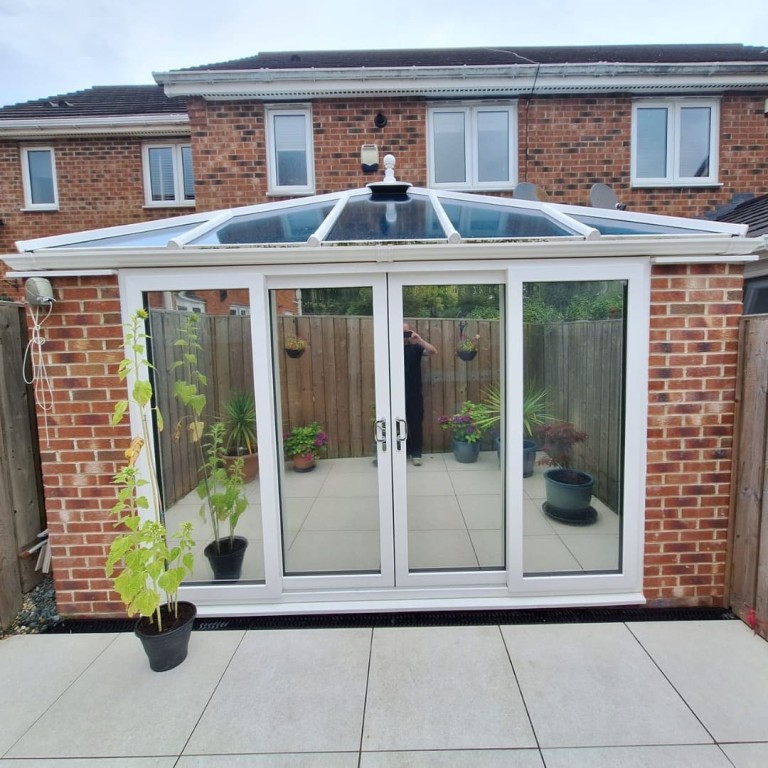
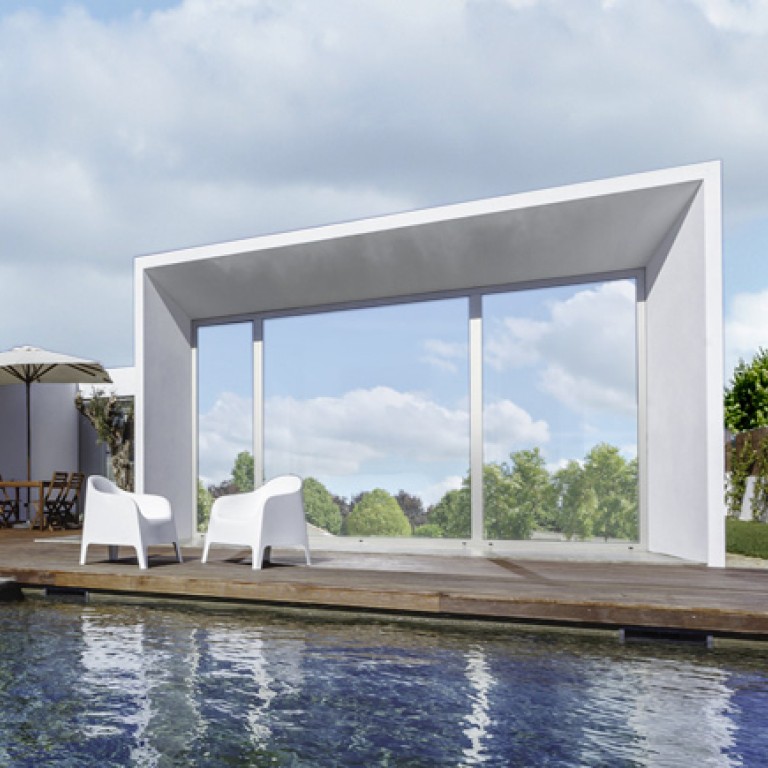
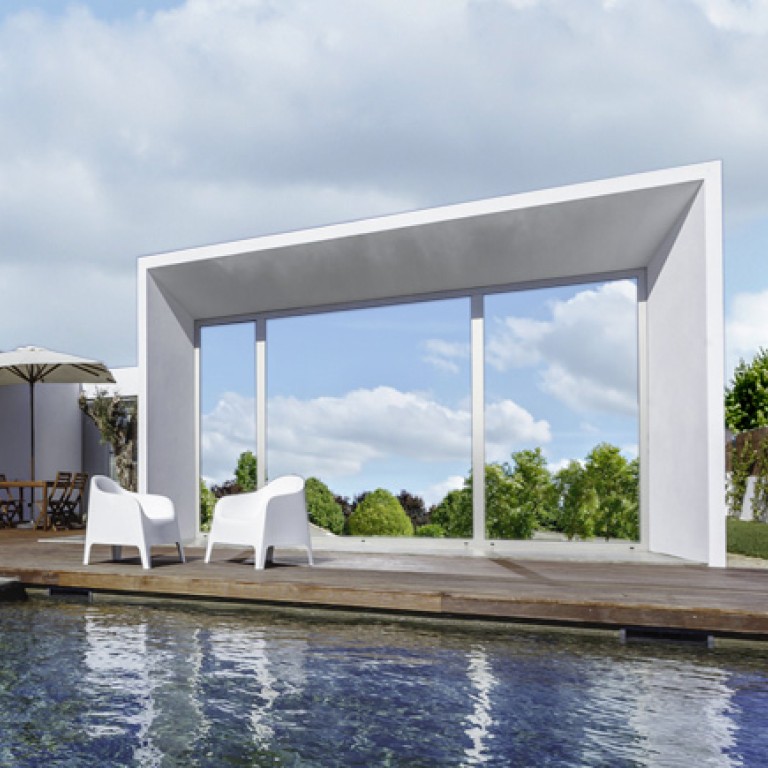

%20square-768x768.jpg)
%20square-768x768.jpg)

